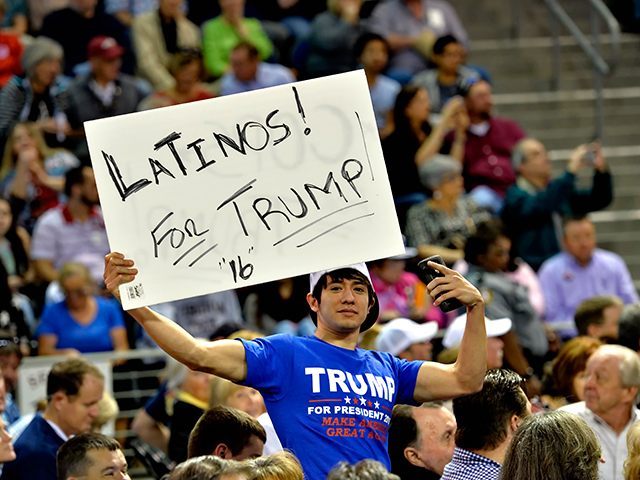A Breitbart/Gravis national security poll conducted on September 20, 2016 found Hispanic Americans significantly more likely to agree that officials and media should openly refer to radical Islamic terrorism and more likely than any other ethnic group, including White non-Hispanic Americans, to say the U.S. has no obligation to take in refugees from terror-linked countries.
Along gender lines, women were more likely to agree that it is not insensitive to use the term “radical Islamic terrorism” than men were.
The poll, which surveyed 1,503 registered voters nationwide, asked respondents: “Do you agree or disagree that these terror attacks [in New York, New Jersey, and Minnesota the weekend of September 18] could be better stopped and defeated if the Obama administration would take action that they have been reluctant to do up to now?”
Among the general population, over half – 58 percent, either strongly or somewhat agreed with this statement. 51 percent strongly agreed. 12 percent of respondents “somewhat disagree” with the statement, while 25 percent strongly disagreed.
Hispanic Americans were more likely than the general population to say that they “strongly agree” with the opinion that domestic terror attacks would be better stopped of the Obama administration acted in a way that they have appeared to be reluctant to: 54 percent. 8.8 percent of Hispanics said they somewhat agreed, making them the largest ethnic/racial minority group to agree in some form with the statement. Only White Americans said they agreed with the statement in larger numbers – 62.2 percent said they “strongly agreed,” while 5.8 percent said they “somewhat agreed.”
Hispanics were more likely than White Americans, however, to say that it is not insensitive to call Islamic radical terrorism “Islamic radical terrorism.” 67.7 percent of respondents who identified as Hispanic Americans agreed with this statement: “We must identify Islamic radical terrorism for what it is. You cannot defeat something if you cannot talk about it.”
Slightly fewer White Americans, 66.5 percent, said the same. Whites were 4 percent more likely to neither agree with this statement more the alternative provided: “It is insensitive to use the term Islamic radical terrorism because it tends to unfairly paint with a broad brush all Muslims.”
Women were also more likely than men to agree with this statement. 60.7 percent of women said they agreed, while 56.3 percent of men said the same.
Hispanics were also over 15 percent more likely to say that the United States does not owe asylum to refugees no matter where they come from. Asked whether America has “an obligation to allow refugees to enter the country even if they come from countries that harbor terrorist groups,” 69.5 percent of Hispanics said no, while only 21.2 said yes.
Compare this to the respondents in general: 55 percent said the U.S. has no obligation, while 29 percent said they do.
White non-Hispanic Americans were more likely than Hispanic Americans to say the United States has an obligation to take in refugees regardless of origin: 58.6 percent answered there is no obligation, while 27.9 percent said yes.
Hispanic Americans were more likely than the general population to support a temporary ban on Muslim immigration. 47.3 percent said they support the idea, compared to 44.7 percent of the general population. Only White non-Hispanic Americans said yes in higher numbers: 53 percent agreed with the ban idea, while 35 percent did not. More White non-Hispanic Americans rejected the ban than Hispanic Americans, 32.3 percent said they did not support the idea.
Hispanic Americans have been disproportionately affected by radical Islamic terror acts on U.S. soil in 2016. Most of the victims of the June jihad attack on the LGBT night club Pulse in Orlando, Florida were Puerto Rican Americans, who as U.S. citizens are not an immigrant or refugee population. Ahmed Khan Rahami, the man charged with multiple jihadist bombings in New York and New Jersey, maintained residences in the cities of Elizabeth and Perth Amboy, New Jersey, which boast 60 percent and 78 percent Hispanic American populations, respectively.



COMMENTS
Please let us know if you're having issues with commenting.